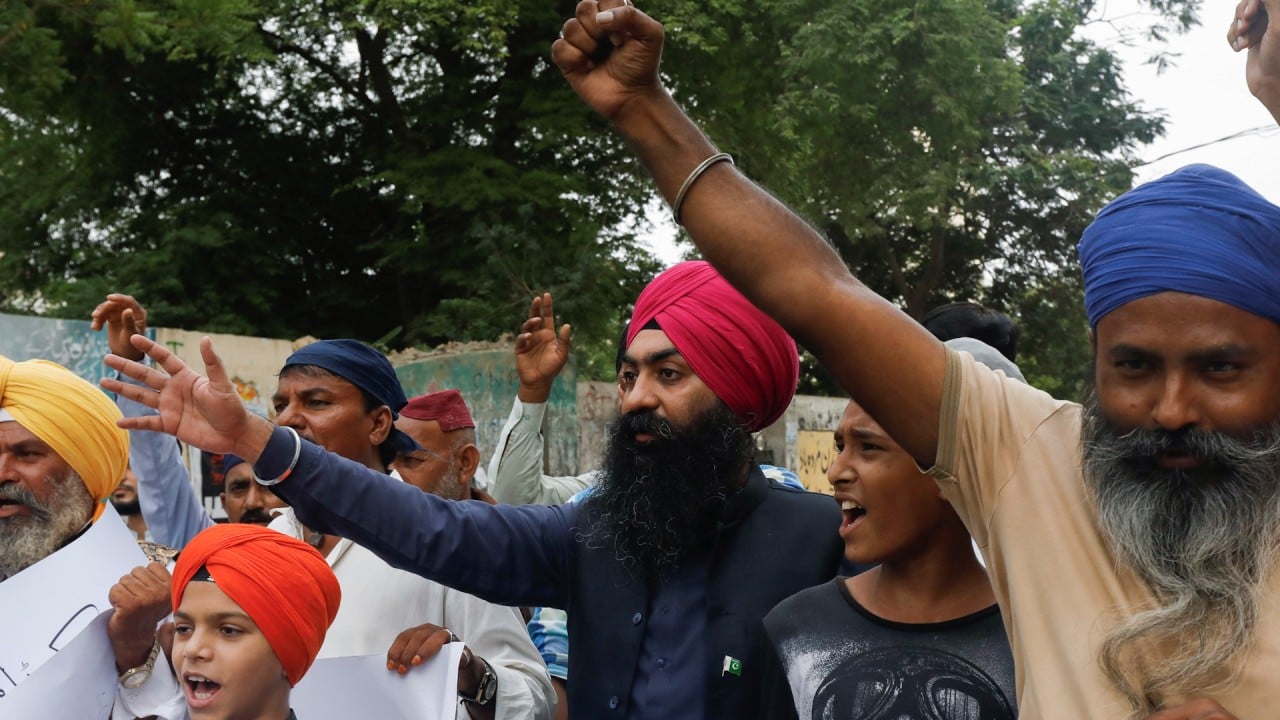
Trudeau’s attempts to needle Modi over Hardeep Singh Nijjar killing risk Western unity
- The diplomatic rift has landed the US and its G7 partners in hot water as they need to balance between an emerging partner in India and an old ally in Canada
- Without convincing evidence and a public trial over the killing, Ottawa can’t expect its friends to risk important ties with New Delhi
When was the last time you saw a Canadian prime minister running from pillar to post to shore up support for his political cause? Perhaps never in recent history – until now.
On September 18, Trudeau stood in parliament and said there were “credible allegations potentially linking” agents of the Indian government to the assassination of Nijjar, a Canadian Sikh separatist leader.
Nijjar’s political outfit seeks a homeland called Khalistan in the Indian state of Punjab. The Khalistan movement resonates largely with the diaspora, with little support in Punjab itself.
One would assume that Canada would complete the investigation, proceed with trials based on available evidence and then try to take aim at New Delhi. It seems the indictment was announced to save the government from public embarrassment after the media got hold of the story. A government investigation trailing a media trial would have damaged the Trudeau government’s public standing.
Moving ahead, there are three options for Canada. First, Ottawa could bring evidence to the public domain through a trial at home. The moral high ground and narrative of a rules-based order alone will not win the battle. But compelling evidence would force New Delhi to cooperate and see allies coalesce around Canada. It would be an uphill task, but this remains the only path to justice.
Sikhs in India’s Punjab fear backlash but see Canada’s Trudeau as ‘very brave’
Second, Canada and India could both refuse to blink as neither believes they have anything to lose. Canada-India bilateral trade stands at just US$8 billion. Canada is, however, a popular higher-education destination for Indian students, who are a vital source of income for Canadian universities. As neither side can weaponise trade or mobility, the issue would probably remain a stalemate until the 2025 elections in Canada, which could bring a diplomatic reset.
New Delhi feels that the rule of law cannot be a one-way street, especially when the current attitude in Ottawa panders to elements that have been accused of attacking Indian missions and espousing violent behaviour. In this context, meeting India halfway seems inconceivable for Trudeau.
Whatever course Trudeau chooses, Canada’s allies hope his attempt at needling Modi does not cost the broader alliance in the Indo-Pacific. Otherwise, it would be a Pyrrhic victory for the global rules-based order.
Chirayu Thakkar is a doctoral candidate jointly with the National University of Singapore and King’s College London

.jpeg?itok=XJEaXQ8X&v=1697621591)

